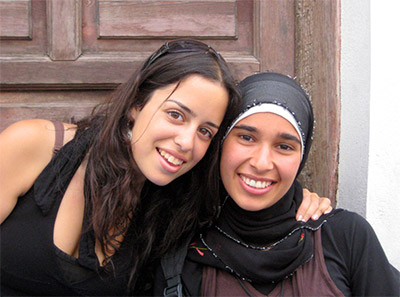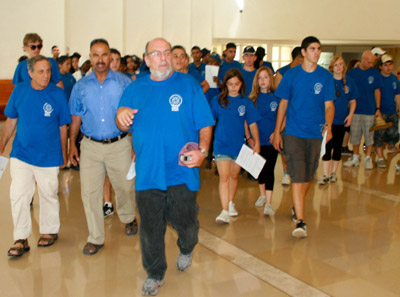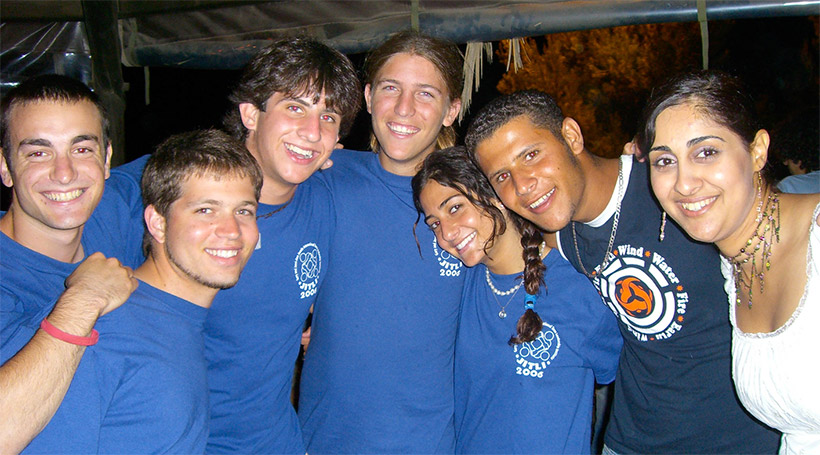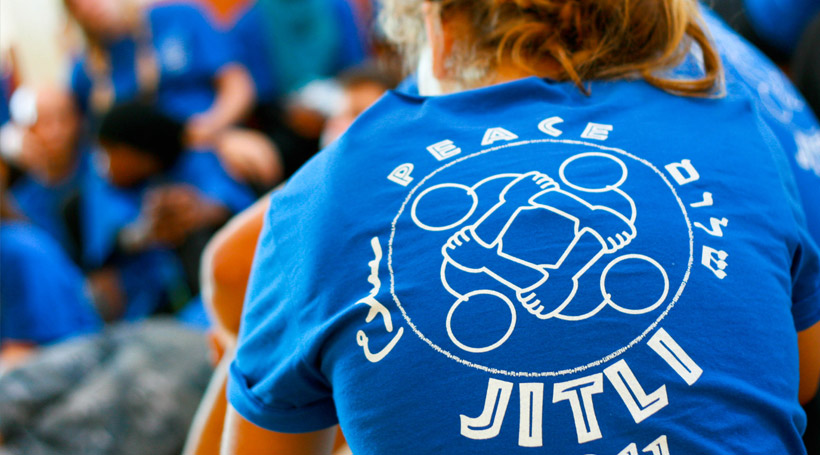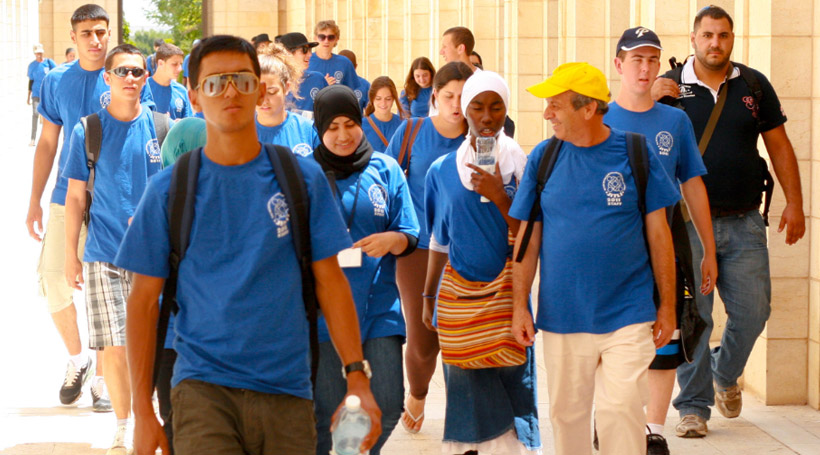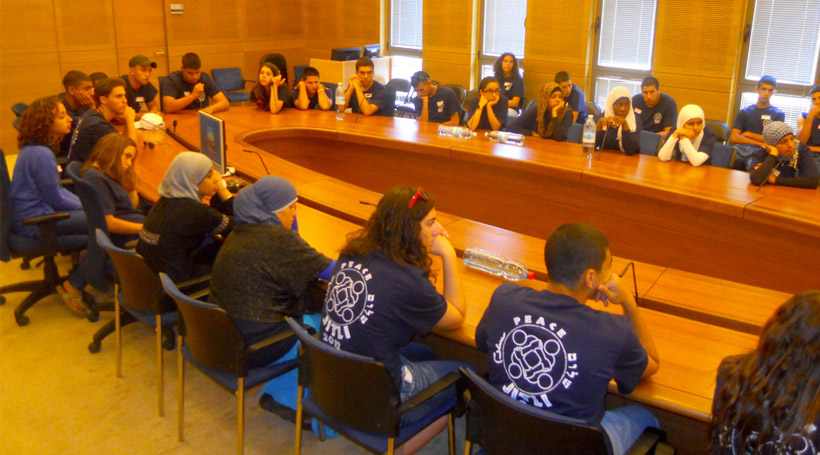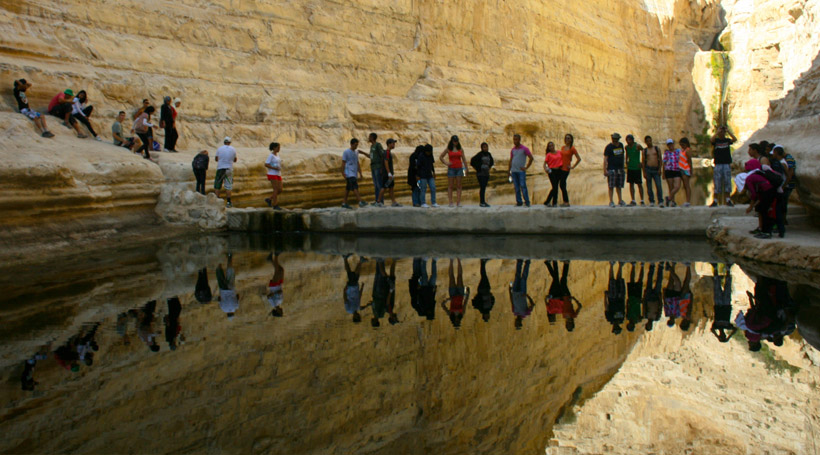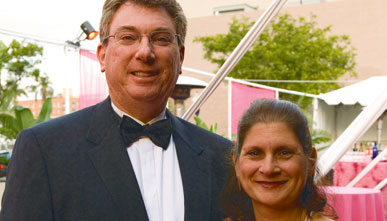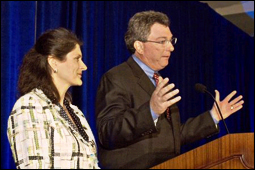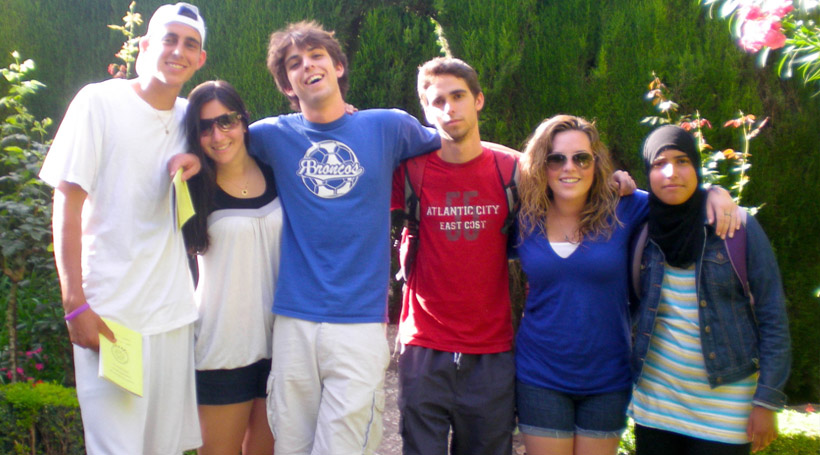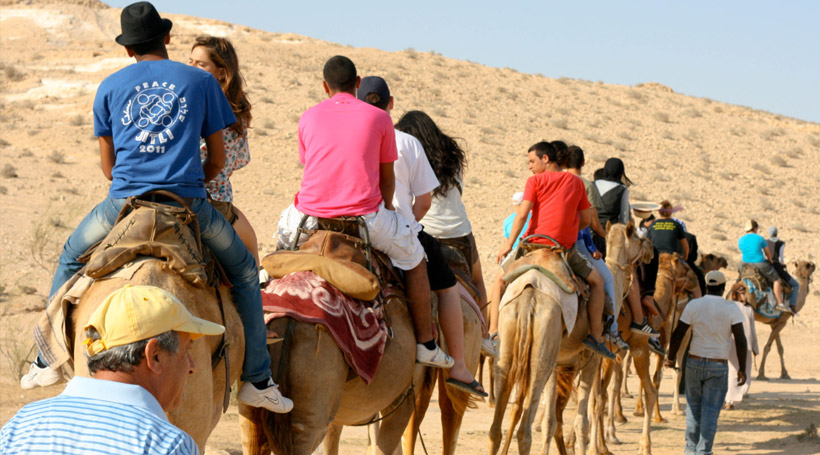The Program
Studies have shown that cultural gaps between Jewish Israelis and Diaspora Jews are larger than ever and continue to grow with every new generation. There is evidence of fear, apathy, lack of connection and understanding between the groups, and even a negative sentiment towards the political situation in Israel. The findings raise serious concerns for the unity and conservation of the global Jewish community. A strong State of Israel and equally strong partnerships between Israel and Diaspora Jewry has been, and continues to be, essential. American youth in the United States, who will be the next generation of community leaders, decision makers, and philanthropists, must be familiar with Israel’s social, economic, and political issues through a framework that will allow them to act in their communities as agents of change and progress. Thus, these young leaders must understand the vital existence of Israel, as well as the critical preservation of Jews in the Diaspora. This applies to Israeli youth as well, who will become the leaders and law enforcers of their country, and its relations to other nations. The media has played an important role in creating stereotypes and making generalizations about Israel, its inhabitants, as well as world Jewry, and in fact all other world communities. Therefore, it is only through face-to-face meetings and dialogue that true connections and partnerships can be created. In an attempt to narrow the gaps between the majority and the minority and allow these connections to be formed, JITLI stands as the sole coexistence and leadership development program that reaches the participants’ own communities and includes home visits, a paramount aspect of understanding each others cultures and building tolerance. JITLI offers a unique opportunity for its participants to appreciate their similarities, acknowledge their differences, and learn and grow as individuals as well as leaders. Potential JITLI participants are subject to a rigorous application and interview process. For the communities in Israel, potential participants are nominated by the appropriate educational institutions. In San Diego and Mexico City, many are referred by alumni and friends of program participants as well as through the numerous presentations given by JITLI throughout the community. After the applications are narrowed down, a committee comprised of JITLI staff and alumni interviews each potential participant to assess psychological readiness, maturity to handle complex issues, communication skills, and leadership experience, among other factors. Each year, approximately 120 teens apply to the program, 40 of which are accepted in each branch. One of the important concepts of the JITLI program is that it consists of much more than the traveling period during the summer. Before and after the trip, participants are required to attend a number of meetings that include educational and personal enrichment activities, phone and video-conferencing between all groups, joint social action projects, and involvement in each of the participant’s respective community by taking part in events, speaking at schools, and traveling throughout the county giving presentations to various community groups. As previously discussed, graduates also serve as the primary recruiters for future participants and take part in the application and interview process. In 1998 a partnership between the region of Ibim and San Diego was established with the support of the United Jewish Federation. Many projects became part of this partnership, which include missions to Israel, teacher exchange programs, and communication between elementary school students. At the time, Gary Jacobs served as one of the members of the committee of this partnership. Click here to learn more about JITLI founders Gary and Jerri-Ann Jacobs. As different members of the committee thought and came up with different connections and projects for the new sister regions, Jacobs and Yaacov Schneider, who was then the Israeli shaliach to San Diego, worked as a team to look for an original and unique project. First, the creation of a building with different recreational facilities to be built in the Negev was considered, but Jacobs was not satisfied. Always being interested in the education as well as the growth and development of the young people in his community, he was determined to create a program that would provide committed individuals with the necessary opportunities to become leaders within their communities. In search for a project that would satisfy his desire to have a positive effect in the leaders of tomorrow, Jacobs and Schneider traveled the entire State of Israel, covering the North and South in one day. After this long day journey, they had spotted the perfect candidate. As they came to the region of Sha’ar Hanegev, a city very close to the partner region of Ibim, these two philanthropists met with the principal of the Sha’ar Hanegev regional school, Arale Rochstein, and with the mayor of the city, Shai Hermesh- now treasurer of the United Jewish Agency and a member of Knesset. The team came up with a project to bring young individuals from the two different regions together, and include teenagers from neighboring Arab regions as well. This was the birth of the JITLI program. The original idea was to include these 4 different groups: American Jews, Israeli Jews, Israeli Arabs, and Palestinians. A characteristic of the program was that every group would consist of 5 girls and 5 boys, and they would be guided by young and adult, counselors from every region. Although not every year could incorporate all four groups, each year has been a success in its own way. The trip now includes a San Diego portion to start it off which lets the American groups also show their home. In 2006, thanks to the generosity of the Shteremberg family, a second JITLI branch was opened. This branch, JITLI Peacemakers Mexico, also affectionately known as The Northern Branch, takes ten Mexican Jewish teenagers from Mexico City, ten Israeli Jewish teenagers from the regional council of Menashe, ten Israeli Arab teenagers from Kfar Qari, and ten Palestinian teenagers from Ba’arta to Israel for two weeks.